Commemorating the 75th Anniversary of the Universal Declaration of Human Rights
A Symposium Report by Mike Jehu, Student-at-Law
On September 28, 2023, scholars, jurists, and legal professionals from across Canada and around the world gathered at Wycliffe College (University of Toronto) for the “Universal Declaration of Human Rights at 75” Symposium.
The Symposium was organized by the Christian Legal Fellowship and supported in part by funding from the Social Science and Humanities Research Council. The purpose of the Symposium was to commemorate the 75th anniversary of the Universal Declaration of Human Rights (UDHR),[1] adopted by the United Nations (UN) on December 10, 1948 in Paris, France.
Participants presented working papers on various aspects of the UDHR, including its history, the scope of its global impacts, and certain sections that have received scant attention in Canadian law. Selected papers will be included in a special collection of essays, to be published by LexisNexis Canada next year.
Dr Nazila Ghanea, UN Special Rapporteur on freedom of religion or belief, provided introductory remarks in a pre-recorded video statement. Dr Ghanea identified a capstone provision of the UDHR, Article 18 (which declares the right to freedom of thought, conscience and religion), as a radical reform that has influenced treaties and constitutions around the world and provided attendant remedies for the marginalized.
The Symposium Committee, Melanie Bueckert, Professor Dwight Newman, KC, and Derek Ross, added that 193 nations have endorsed the UDHR, including Canada. The UDHR describes the rights contained in its 30 articles as universal, inherent, and inalienable – rights that come before government, not from government. A recurring question asked at the Symposium was whether Canada is living up to the UDHR’s proclamations and goals?
The Honourable Michael Bastarache, retired Justice of the Supreme Court of Canada (SCC), delivered his opening address on the UDHR’s pathbreaking role in leading to a societal recognition of rights.
For Justice Bastarache, the UDHR represents a collective vision of what is right and fair. Yet he probed tensions in the Canadian Charter of Rights and Freedoms,[2] being its general orientation towards individual rights punctuated by certain rights afforded to specific groups.[3] He remained optimistic that the UDHR can offer an effective model in creating respect for human rights,[4] and reminded us of the importance of applying the principles of fundamental justice in Canada.
The first panel presented on freedom of conscience and religion. The Honourable Justice Christopher Mainella and Melanie Bueckert (Manitoba Court of Appeal) discussed the UDHR’s influence in Canada, exploring how aspects of Canada’s freedom of religion jurisprudence remain underdeveloped.
They pointed to Big M Drug Mart[5] where the SCC largely construed section 2(a) of the Charter as a negative right, skirting the debate in the Alberta Court of Appeal[6] on whether it should be interpreted to advance the UDHR’s aim of eliminating government oppression and repression on account of religious belief.
Professor Farrah Raza (Pembroke College, Oxford) expanded on definitional challenges with freedom of religion in Article 18 of the UDHR, including its individual and communal, public and private aspects. Attendant practical difficulties include determining who or what groups attract constitutional protection under certain conditions?
We then heard from Professor Blair Major (Thompson Rivers) who argued that freedom of religion protects dignity, per se, though its connection to religious freedom has not been clearly articulated in Canada. Professor Major called for a theory of the “dignity of religious freedom” to be developed and began to sketch out what this might look like.
Next, Professor Newman and Derek Ross turned to collective aspects of the UDHR. Professor Newman (University of Saskatchewan) contended that the UDHR’s travaux préparatoires reveal an intent to protect and empower groups, resulting in rights to hold property with others (Article 17), to peacefully assemble and associate (Article 20), and to freely participate in cultural community life (Article 27(1)), among others.
Focusing on the UDHR’s protections for the family, Derek Ross (CLF) proposed that Article 16(3)’s description of the family as “the natural and fundamental group unit of society” places certain positive obligations on the State to protect the integrity of the family. Article 26(3) also places corresponding duties on parents to care for their children. Ross argued that the purpose of these rights and obligations, as revealed by the travaux préparatoires, is to fortify the family as an intermediate institution between the state and the individual which exists to protect the rights of its members, especially children, against totalitarian tendencies.
Professor William Schabas (Middlesex University) delivered a special luncheon address on the UDHR and the role of States from the “Global South” in its development.
He noted criticisms on this front, given the under-representation of such nations in participating in its drafting and its ratification. However, since that time, more States of the Global South have joined the UN, and have regularly invoked the UDHR, reminding other States of the need to respect it. In addition, more recent human rights instruments have been ratified that cohere with the UDHR, including the International Covenant on Civil and Political Rights[7] and the International Convention on the Elimination of All Forms of Racial Discrimination.[8] Thus, the UDHR is a basis for continuing and expanding consensus, evidencing the robustness of its claim to universally applicable principles.
The afternoon began with the third panel presenting on fundamental freedoms represented in the UDHR and the Charter. The Honourable Justice Peter Lauwers (Ontario Court of Appeal) discussed the proposition that free speech is the core of dignity. In considering the scope of freedom of expression, Justice Lauwers queried whether our understanding of dignity could be better informed by UDHR principles such as truth, reason, and rationality.
Professor Jamie Cameron (Osgoode Hall) explored how the UDHR could be employed as a framework for interpreting freedom of peaceful assembly under section 2(c) of the Charter. She envisioned section 2(c) as a positive, stand-alone, spatial right that sets parameters for the meaning of “peaceful” in a way that distinguishes peaceful assemblers from bad actors while allowing for some level of disruption.
Finally, Professor Marcus Moore (UBC) proffered a model for how freedom of thought protections might function in an information revolution. Professor Moore identified concerns surrounding the potential for widespread censorship and misinformation promulgated on social media platforms, sometimes with government collusion. Interestingly, he argued that freedom of thought could be applied as a positive right that protects the process of thinking without interference, potentially providing remedies against censorship or sweeping attempts to mislead the public.
For the fourth panel, Professor Debra Haak and Professor Matthew Harrington considered how concepts such as “equality” and “dignity” can be susceptible to multiple, and, at times, competing, interpretations.
Professor Haak (Queen’s) examined the recent decision of the Ontario Superior Court upholding certain Criminal Code offences[9] created under the Protection of Communities and Exploited Persons Act.[10]. Professor Haak highlighted the competing conceptions of equality advanced by different parties and interveners in that case. She underscored how the PCEPA preamble’s declaration (that “discouraging prostitution” protects the “human dignity and equality of all Canadians”, especially women and children who are disproportionately impacted by it), contrasts with conceptions of equality as a right to self-determination regardless of potential impacts.
Professor Harrington (Université de Montréal) presented a spirited critique of human dignity as a rhetorical device that undermines the rule of law. He deconstructed the instability of applying Charter protection to unquantifiable perceptions of indignity, and how this would render the concept of dignity an “empty vessel” with which to facilitate desired outcomes.
Finally, Tersha De Koning (Toronto) examined Article 5 of the UDHR, which states that “No one shall be subjected to torture or to cruel, inhuman or degrading treatment or punishment”. De Koning explored how this provision was developed in response to atrocities committed against marginalized groups during WWII, and how, for some of the drafters, it was informed by an anthropology that understood each person as created in the image of God and possessing inherent human rights and dignity that cannot be revoked or limited by natural sources. De Koning also discussed Article 5’s constraining and remedial elements to respectively stop and punish acts that infringe on the inviolability of the human person.
Professor Habib Malik (Lebanese American University, retired) concluded the Symposium with a special lecture on a central figure in the construction of the UDHR: his late father, Dr. Charles Malik. A Lebanese diplomate, politician and philosopher, Dr. Charles Malik played a pivotal role in developing the UDHR and securing its adoption at the UN General Assembly, without a single dissenting vote.
Dr. Malik’s commitment to protecting human rights was informed by his Christian faith, as was his work in building cross-cultural consensus on universal principles underpinning human nature. That is, humans are endowed with rationality, conscience, and reason and possess inherent dignity and worth. Charles Malik’s words in the UDHR preamble echo throughout history: “recognition of the inherent dignity and of the equal and inalienable rights of all members of the human family is the foundation of freedom, justice and peace in the world”.
Symposium presentations were enriched by insightful remarks from panel discussants, including Professor Bruce Ryder (Osgoode), Professor Anna Su (Toronto), Professor Faisal Bhabba (Osgoode), Professor Trudo Lemmens (Toronto), and Professor Uchechukwu Ngwaba (Lincoln Alexander School of Law).
Audience members also added many thoughtful and probing questions that contributed to making the event a success and to more rigorous scholarship in the forthcoming publication. These papers will no doubt by enriched by the Symposium’s discussion of timeless and historical principles - principles that remain potent to advance the cause of justice in Canada and around the world.
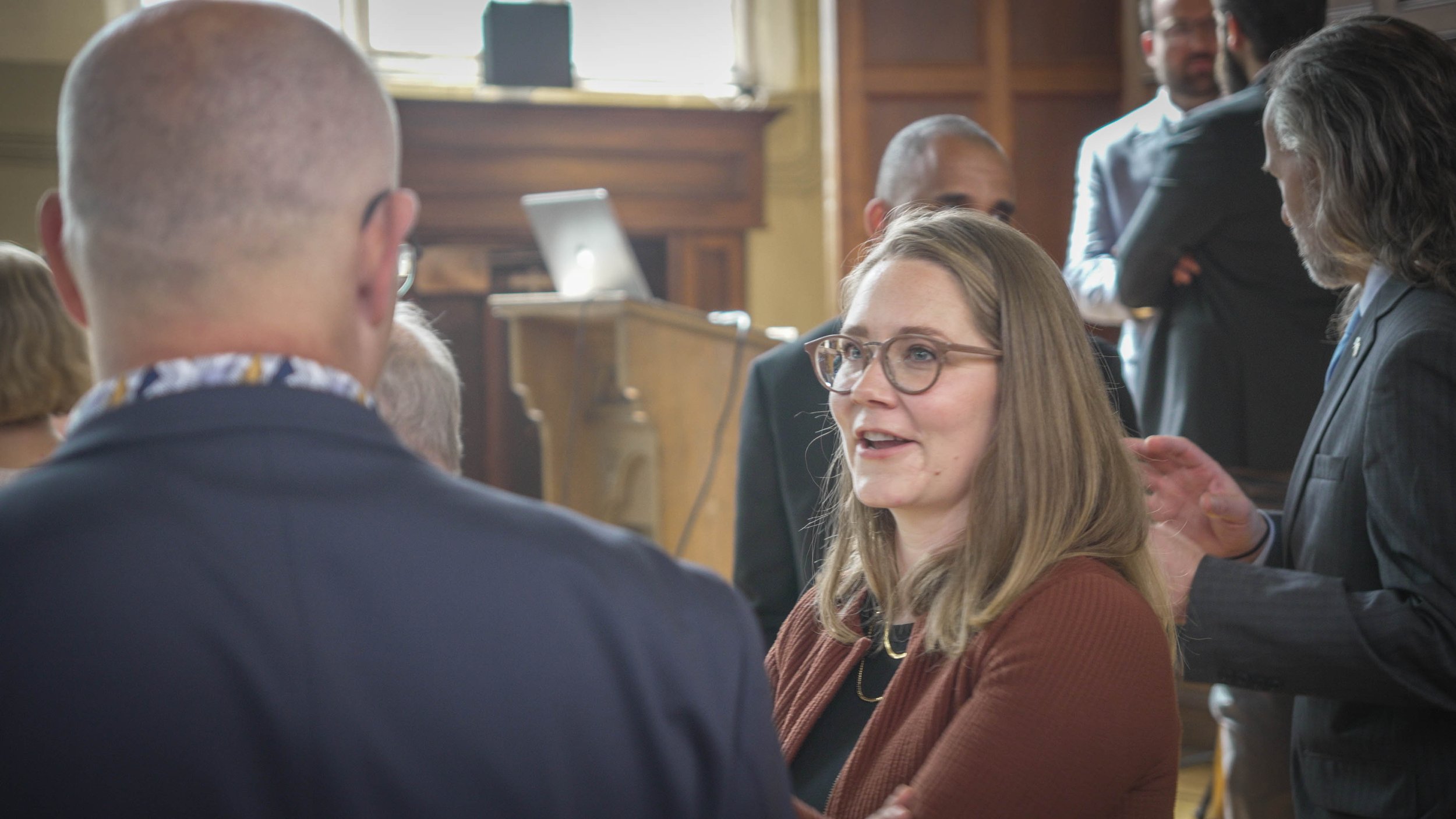
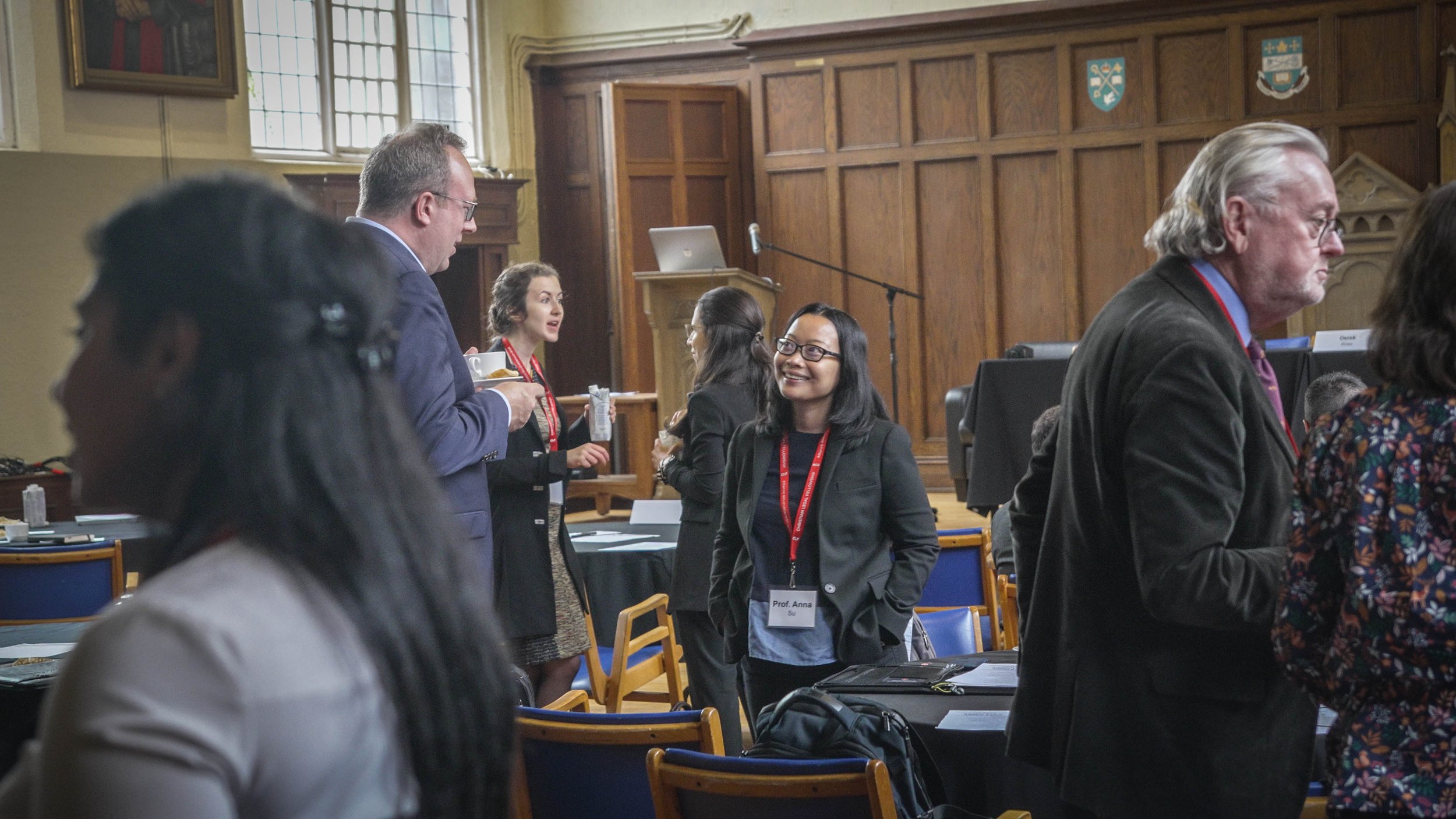
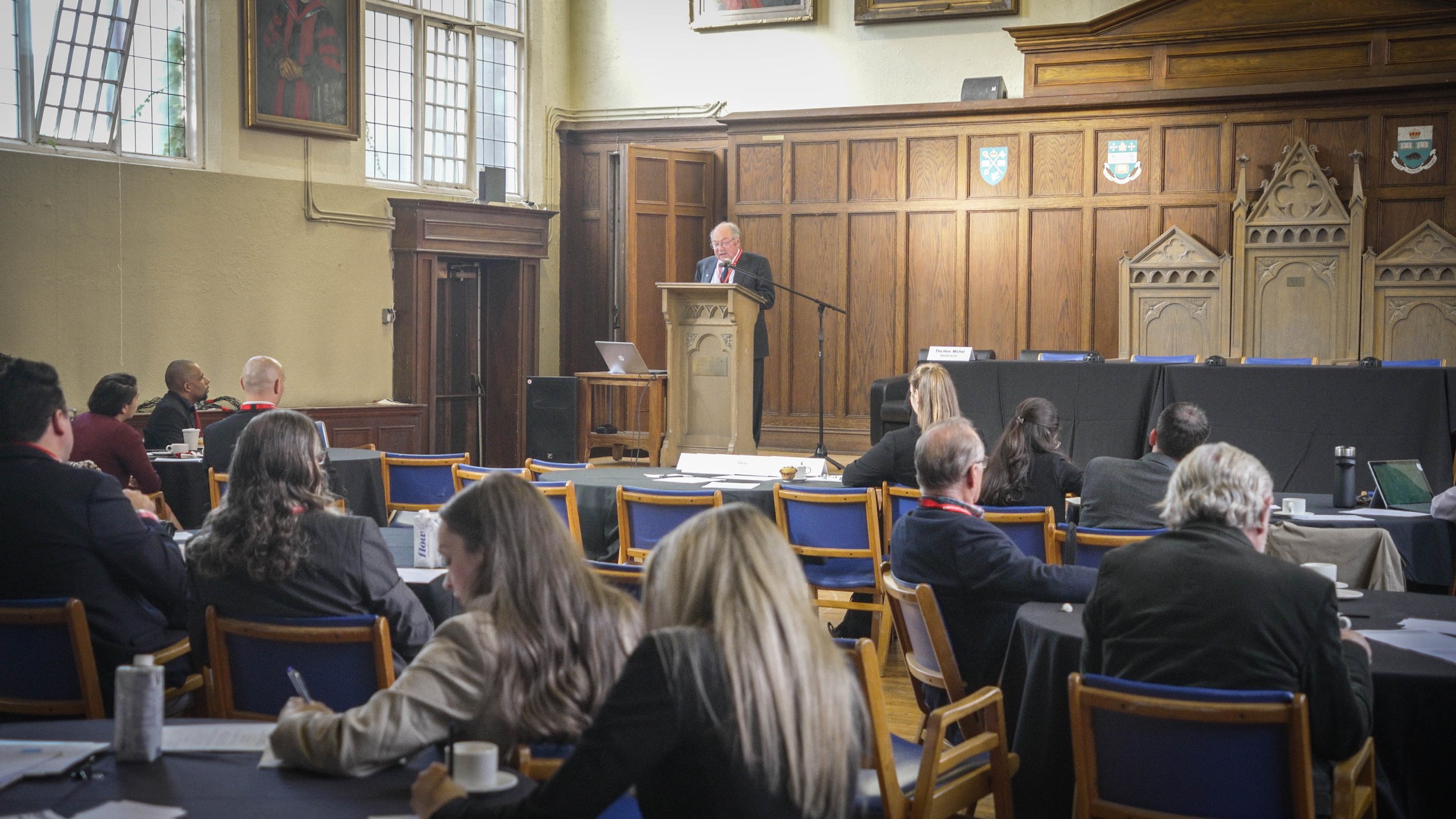
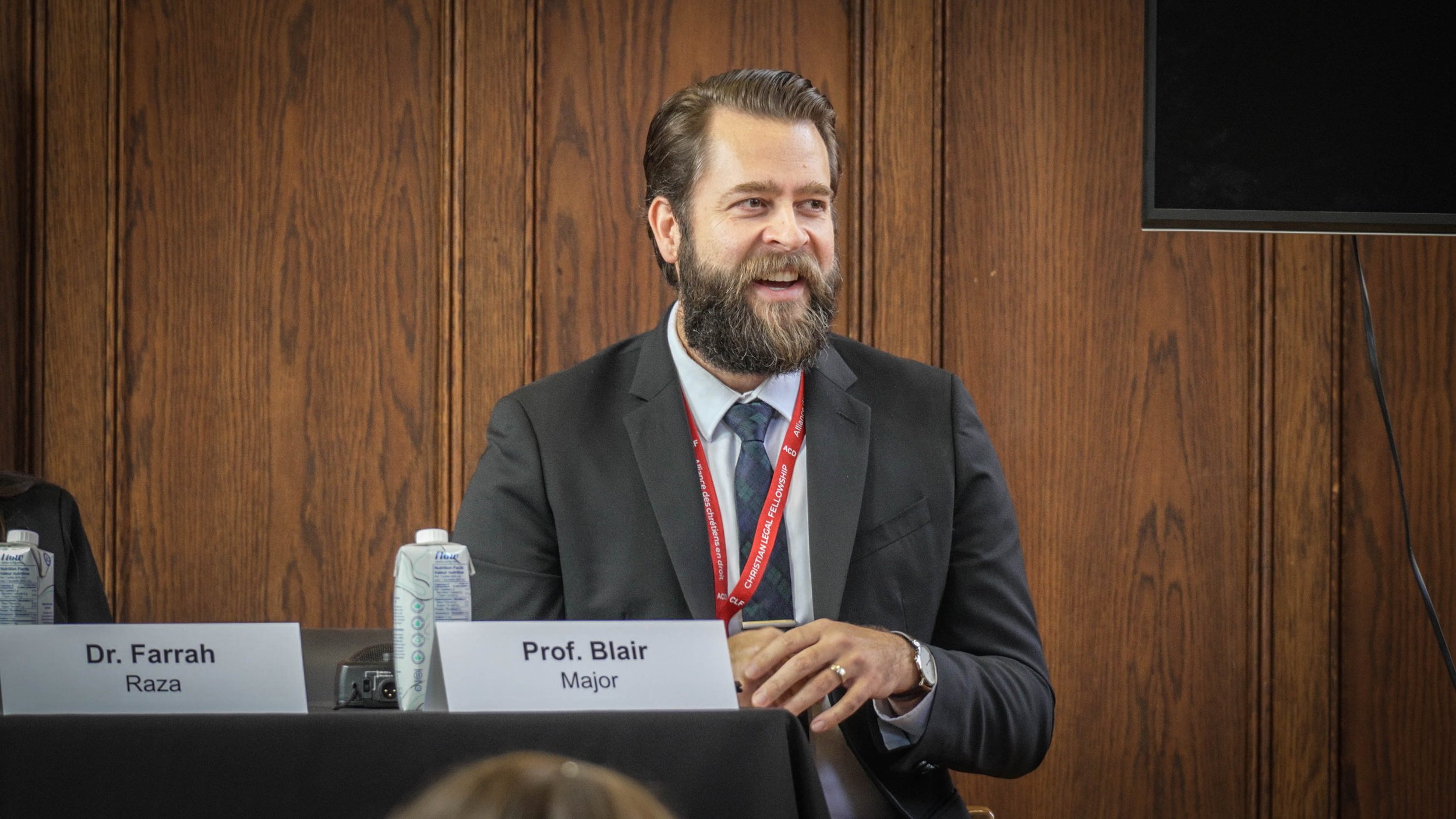
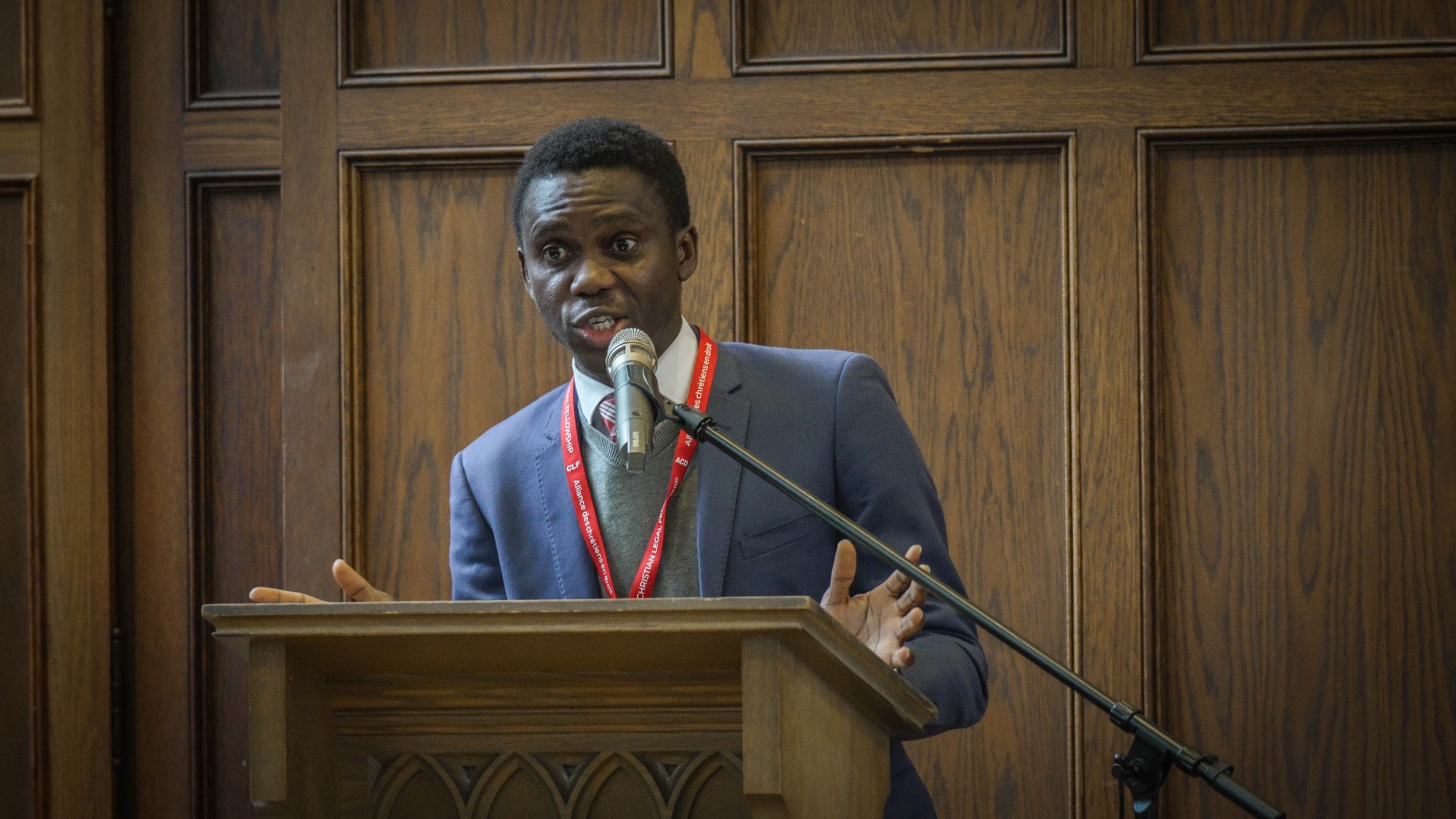
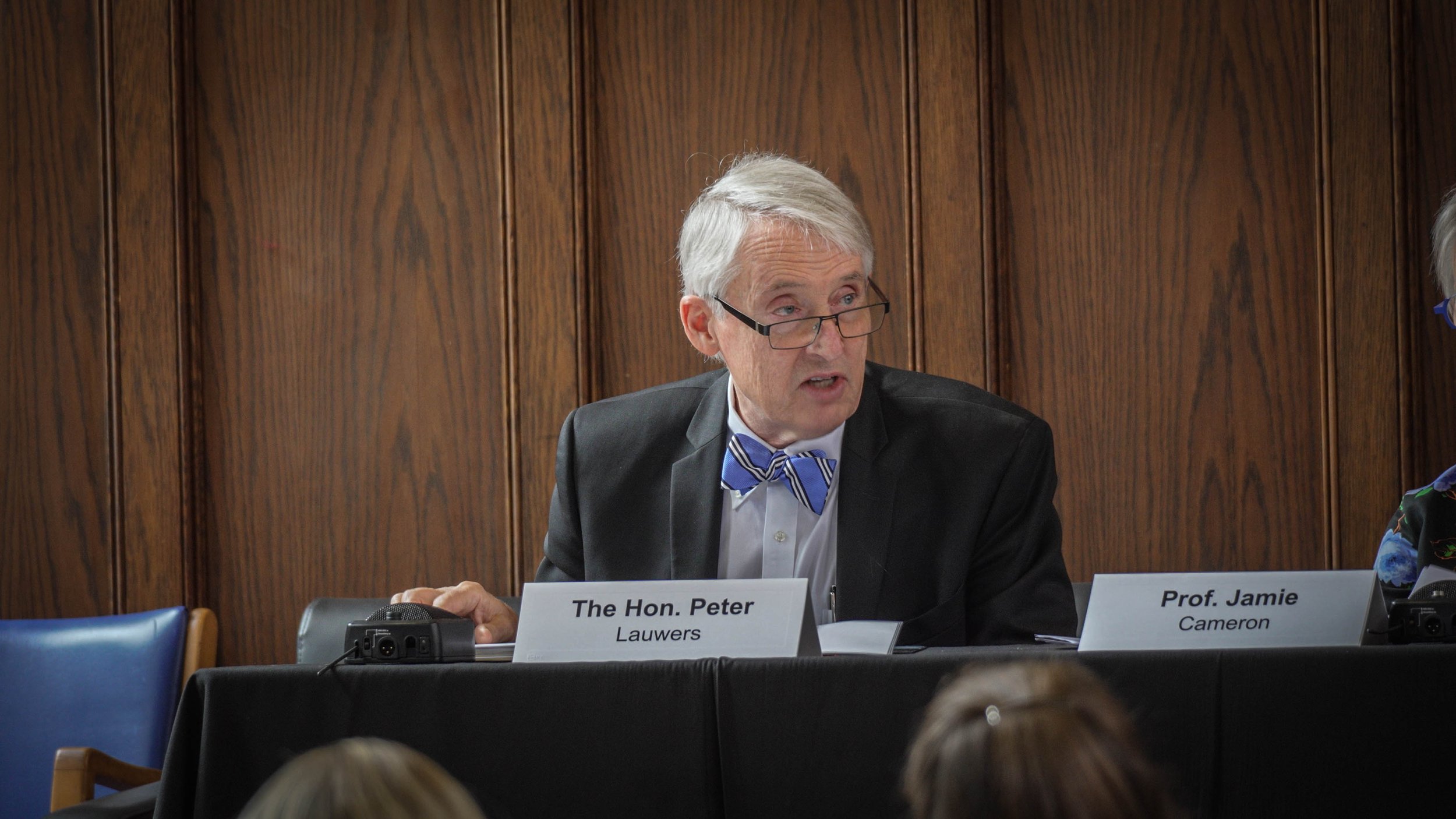
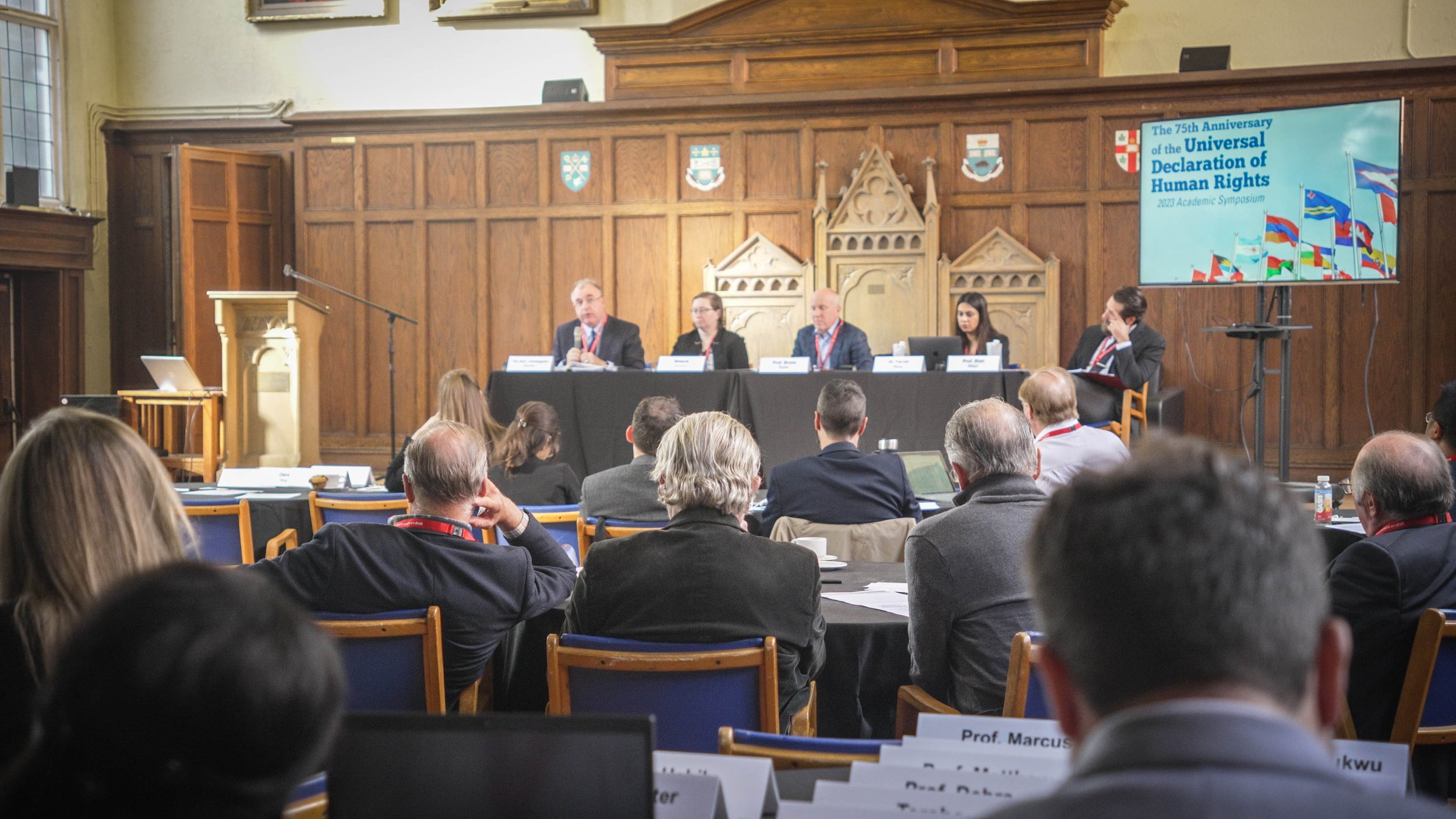
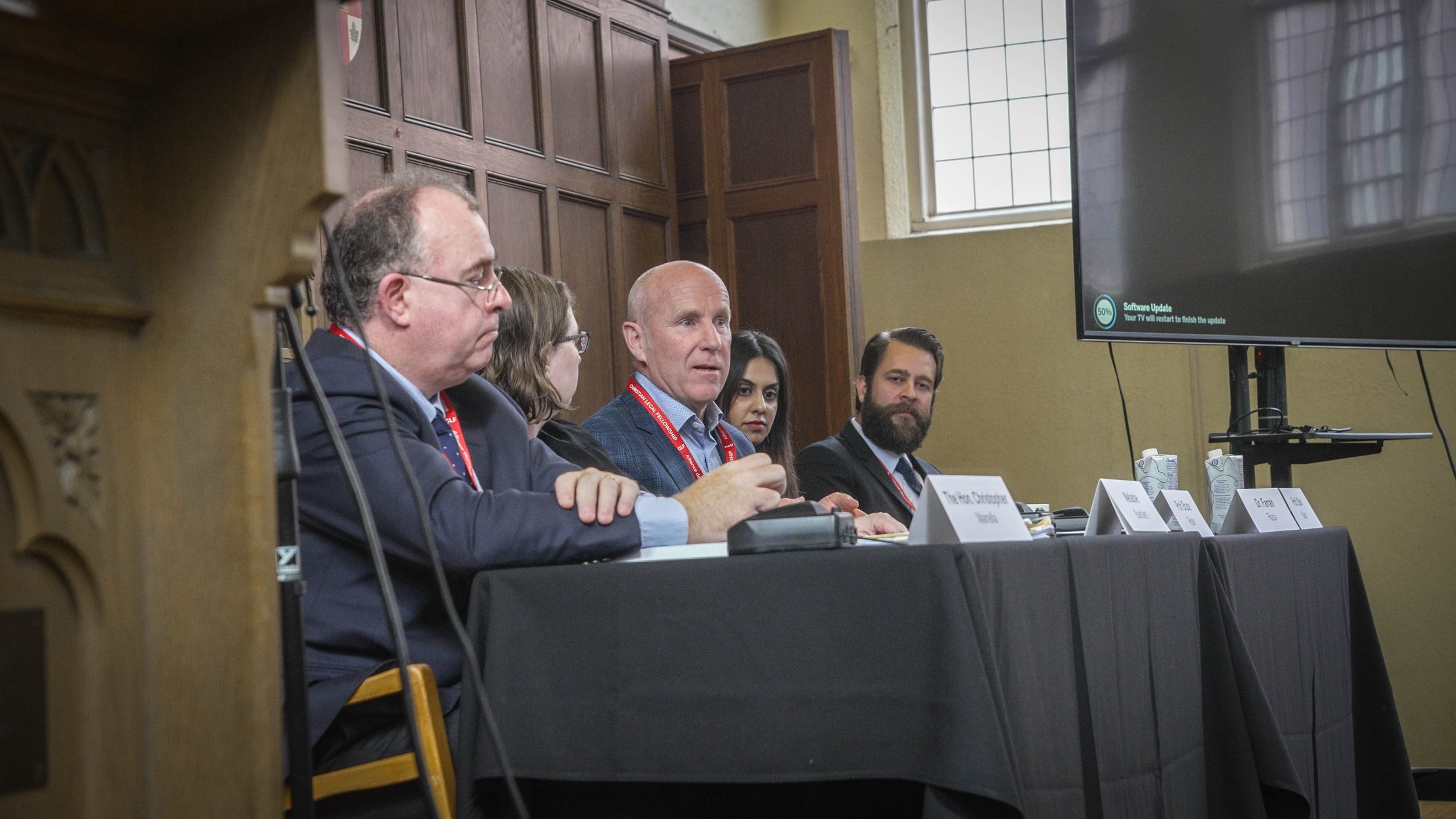
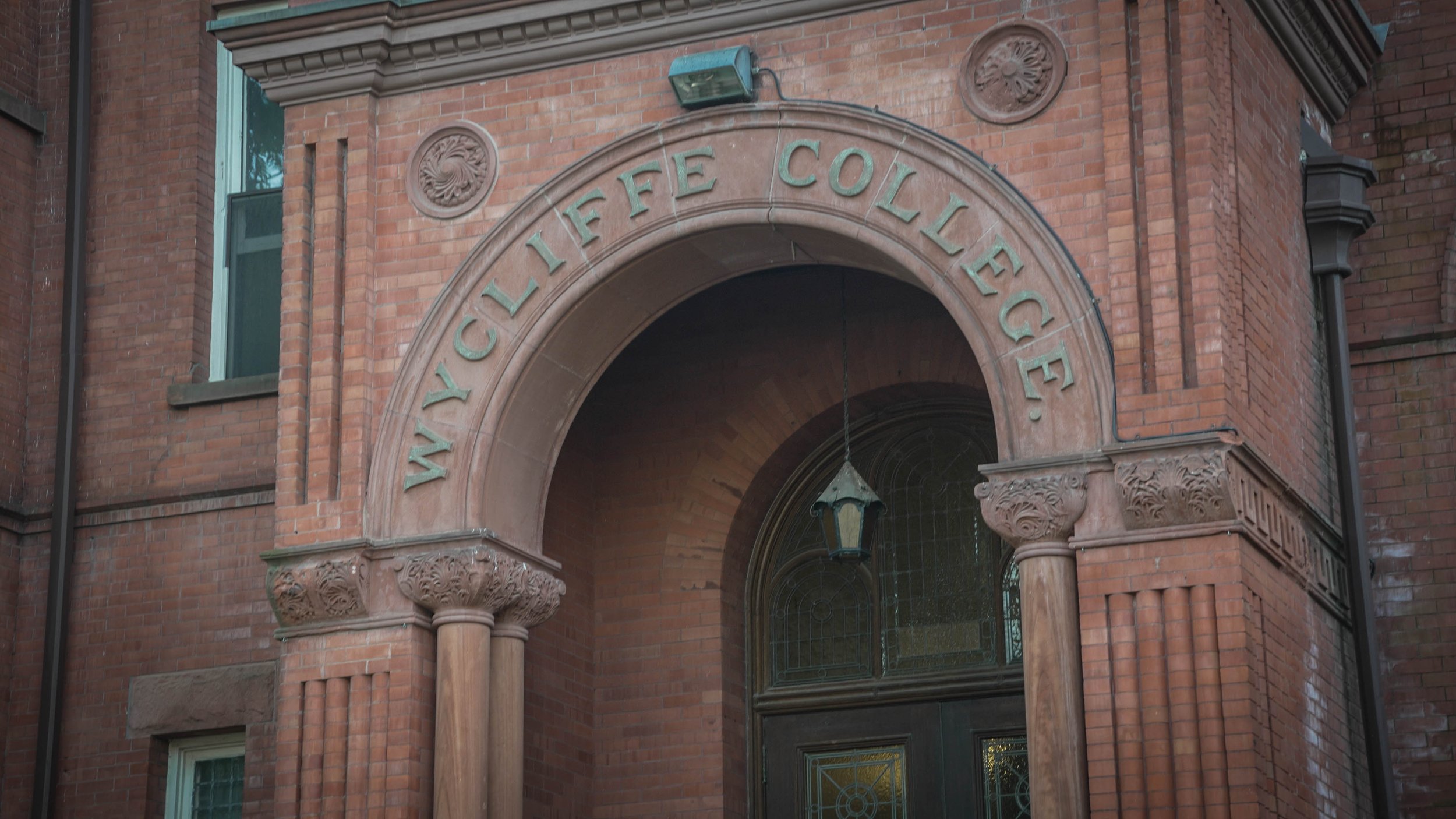
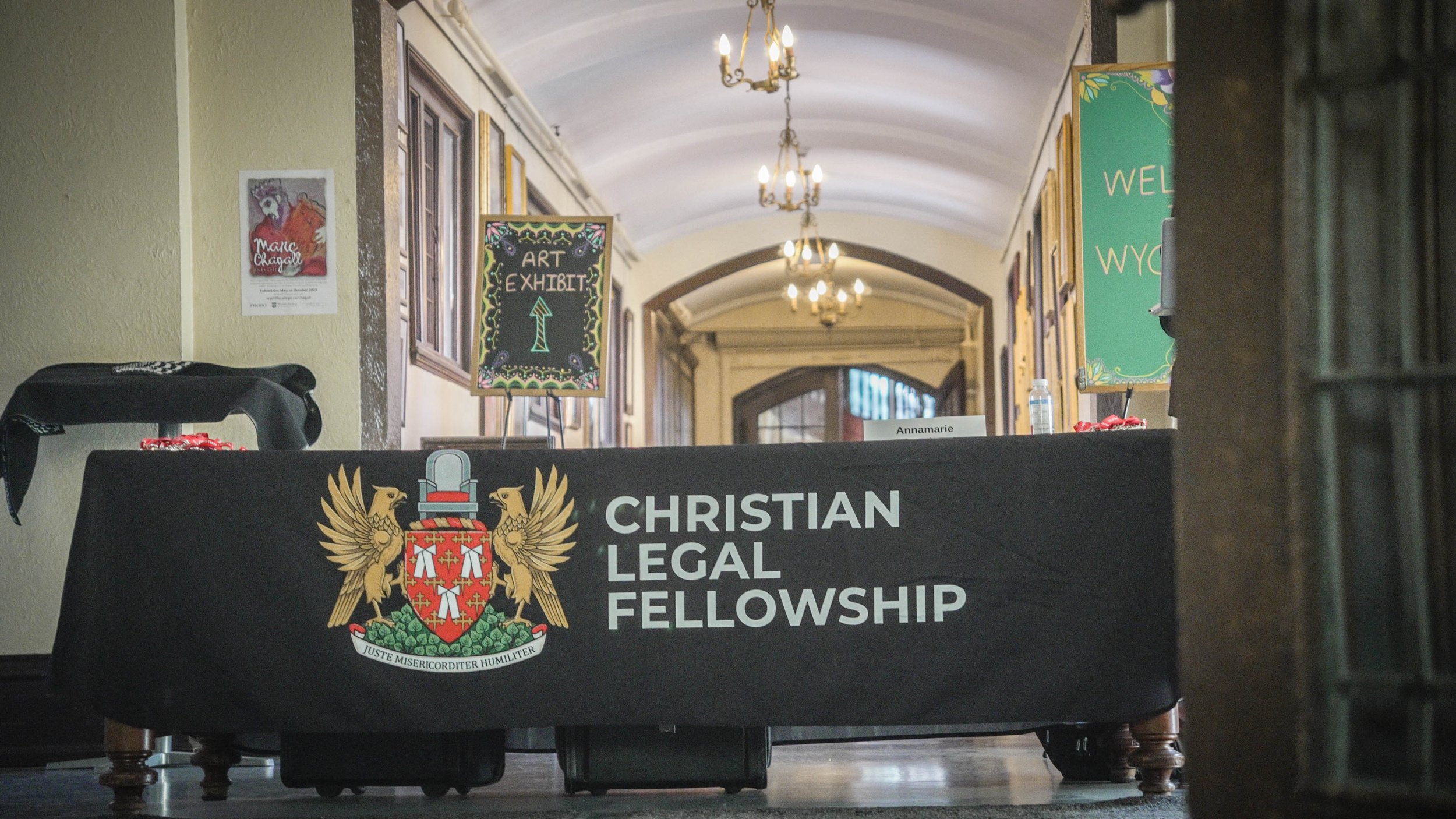
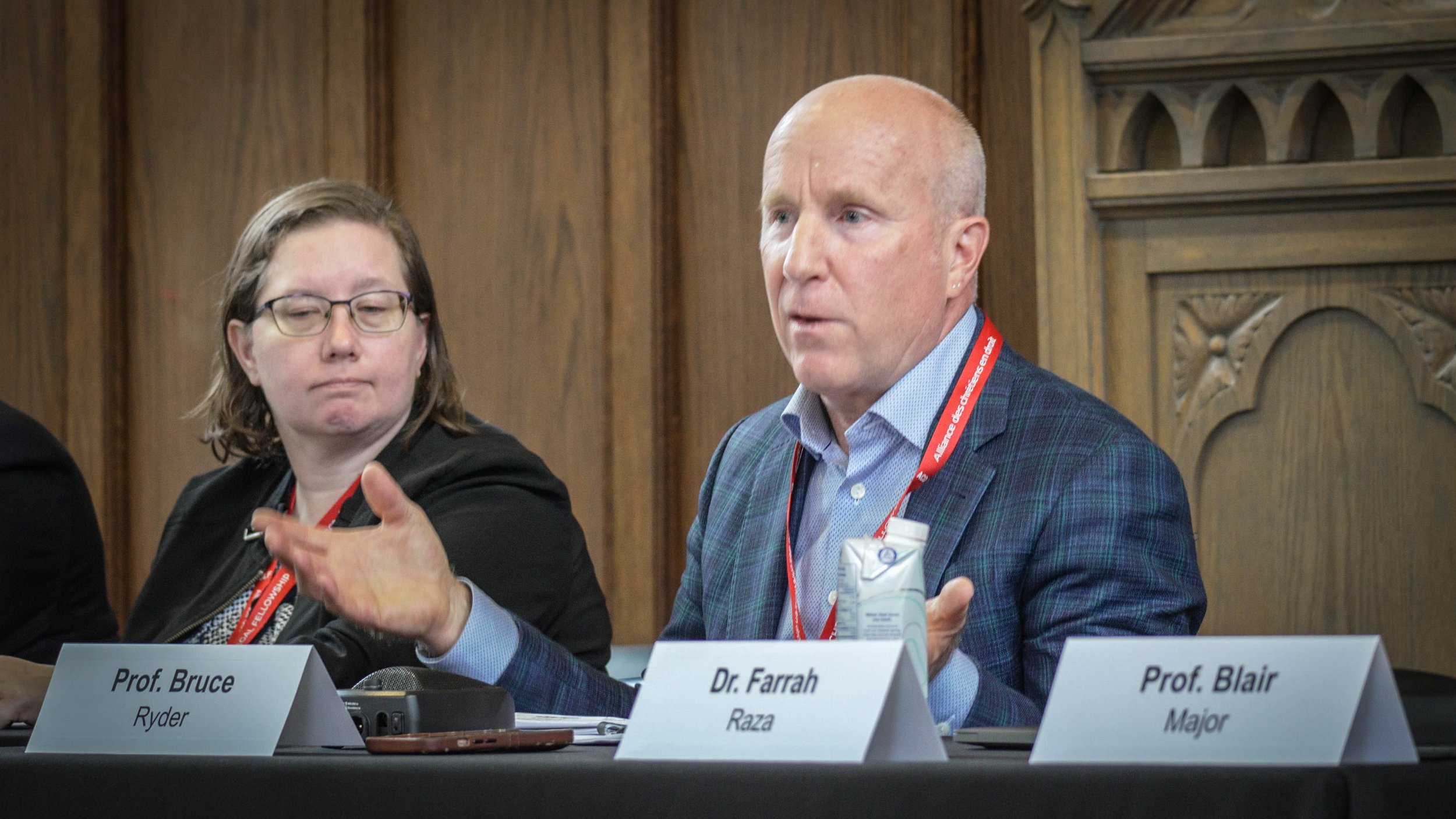
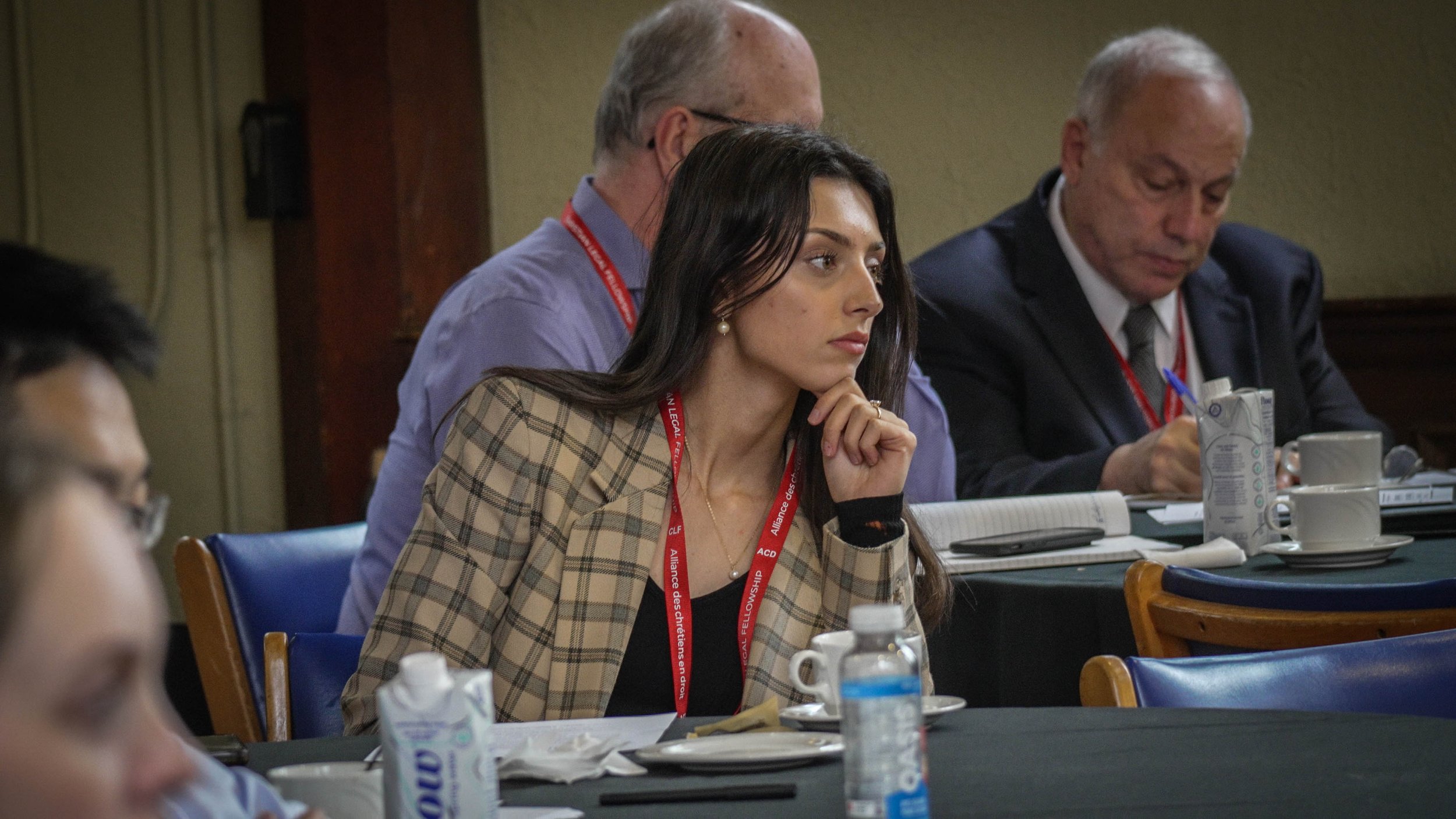
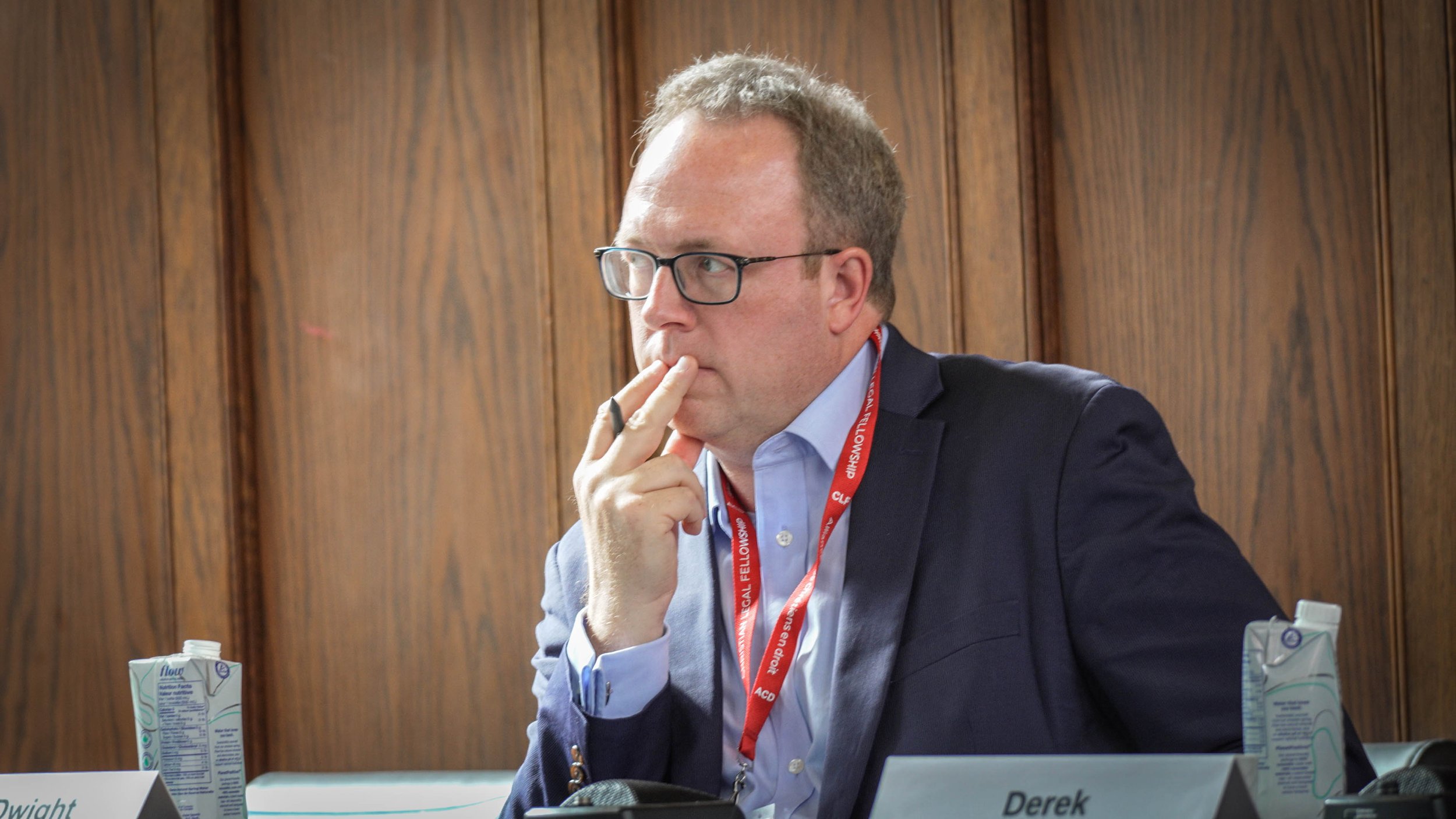
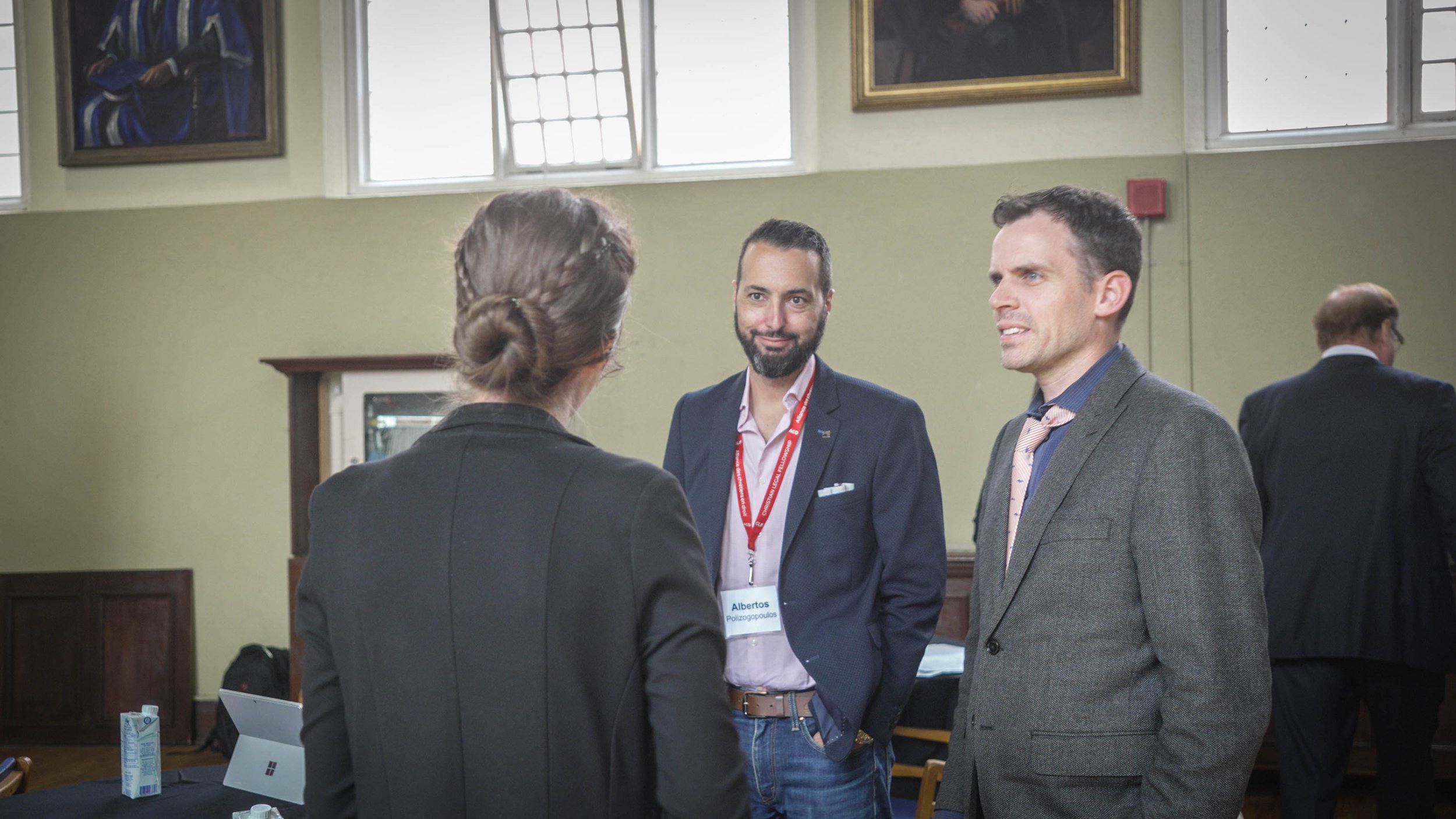
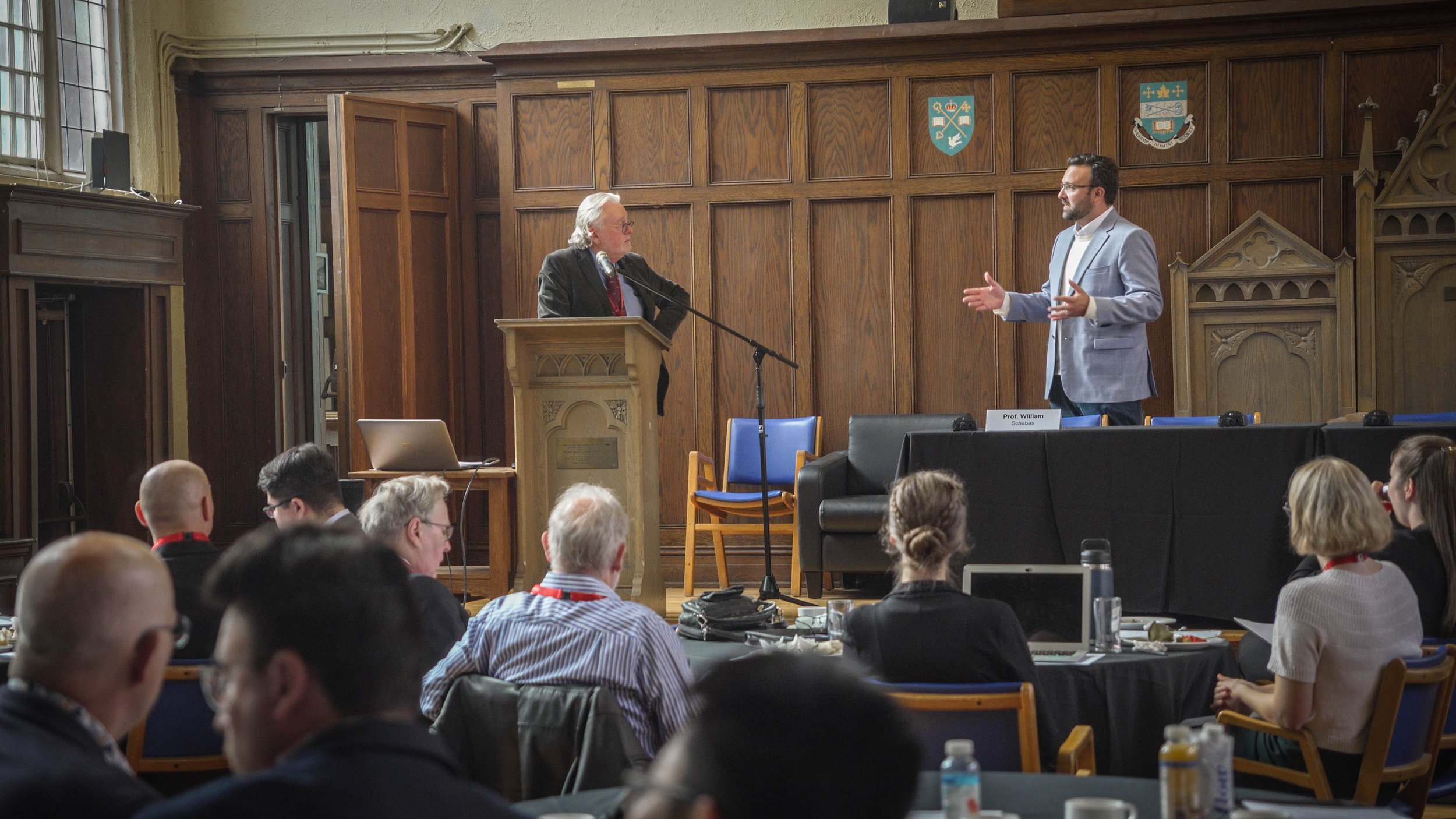
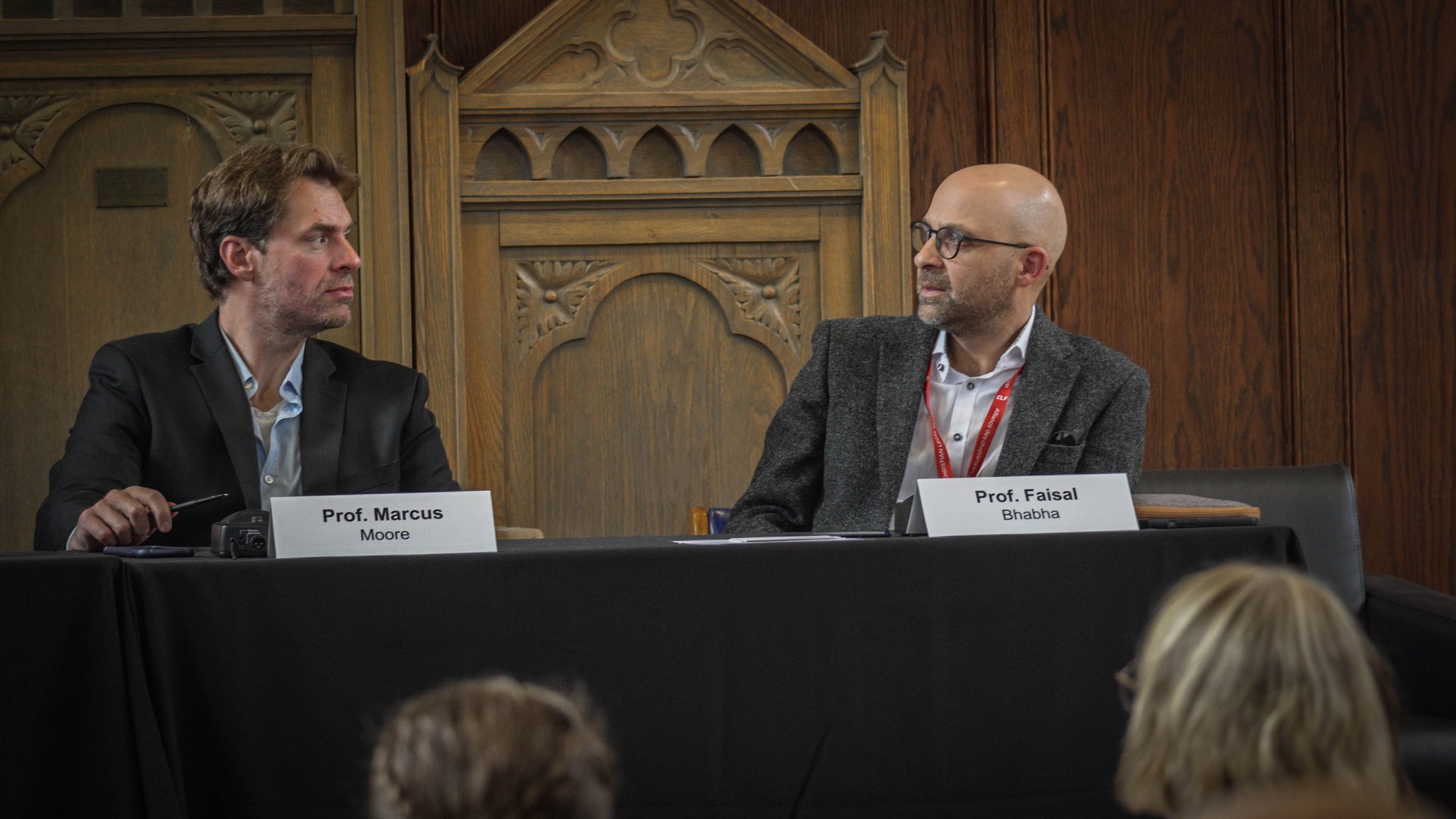
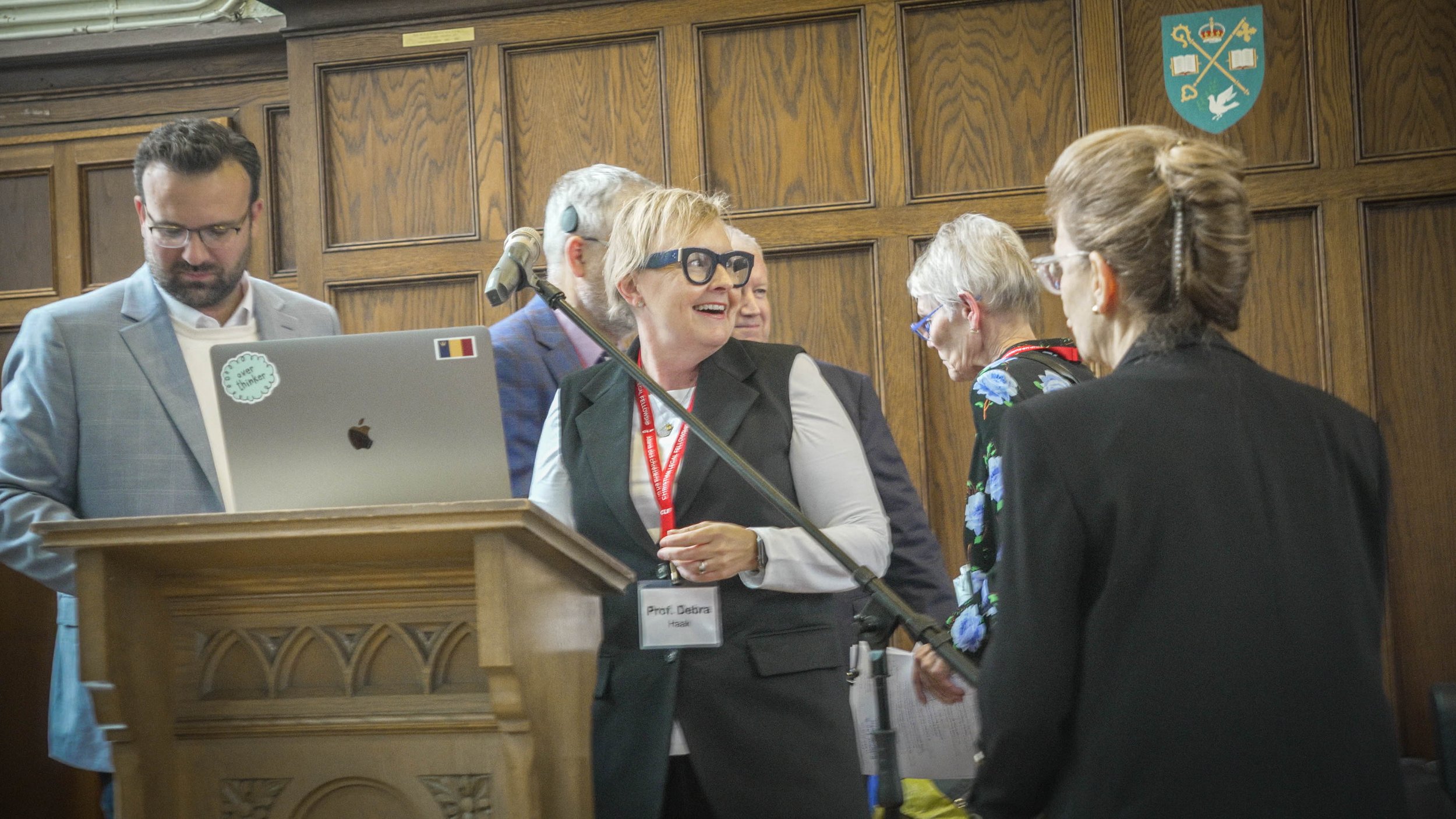
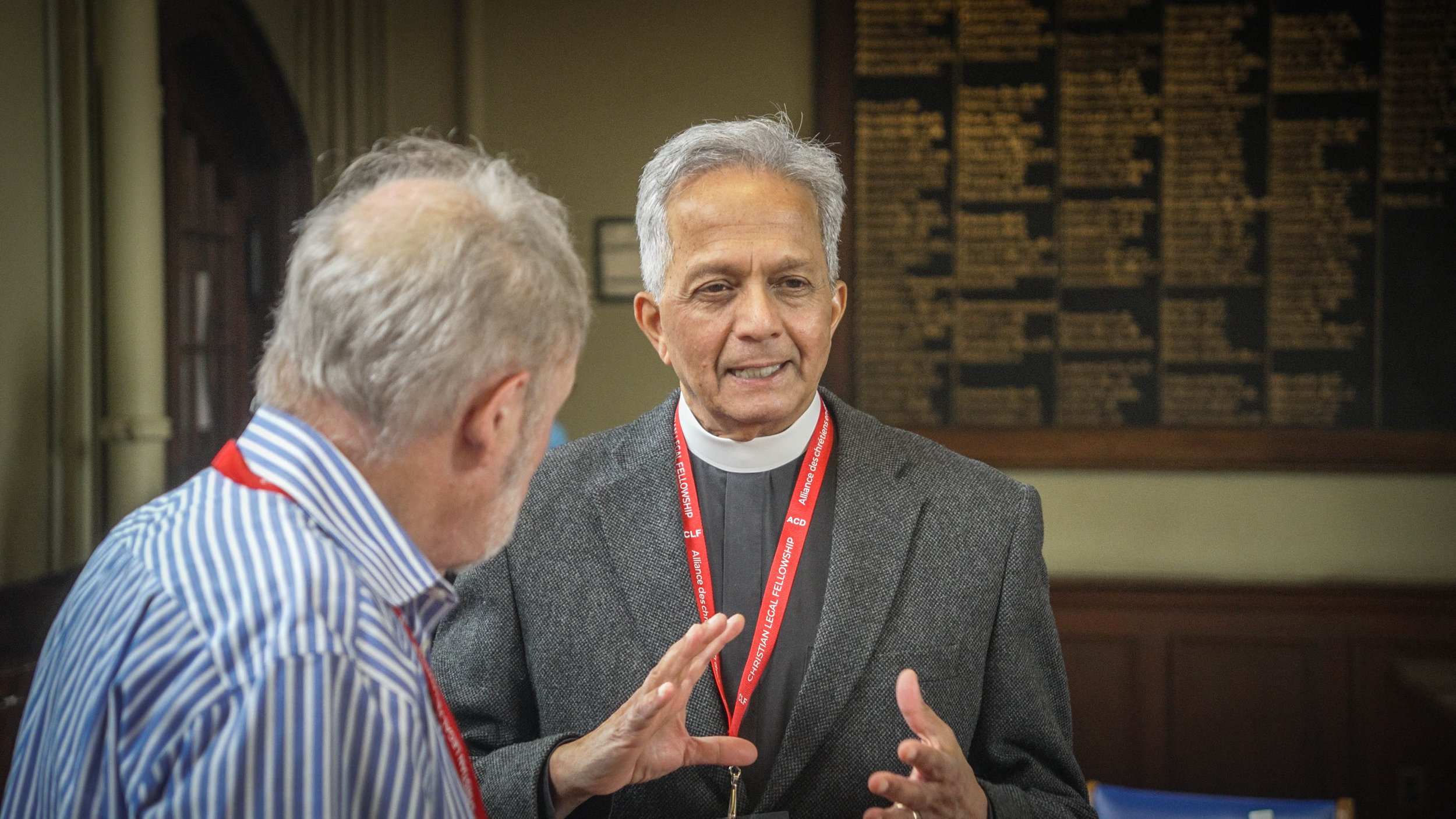
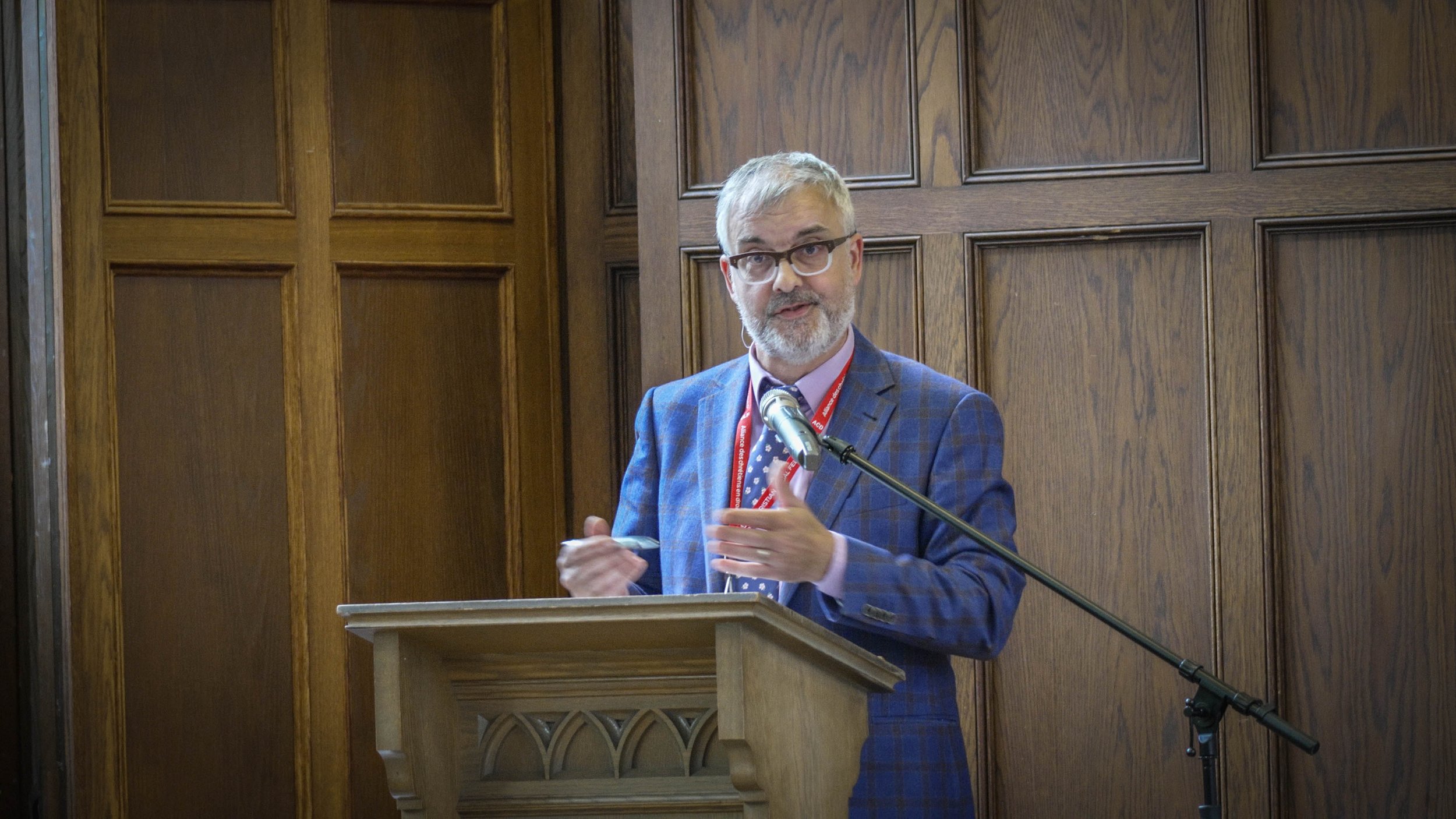

*Mike Jehu is an articling candidate with the Office of the Judge Advocate General in the Canadian Armed Forces. He holds a JD from Osgoode Hall Law School where he served on the CLF Student Executive for two years. Mike and his wife, Sujin, are devoted parents to their three children.
Christian Legal Fellowship is an NGO in special consultative status with the United Nations Economic and Social Council (ECOSOC). To read more about CLF’s annual Academic Symposium on Religion, Law & Human Rights, click here.
Photo credits: Jon Laakso
[1] Universal Declaration of Human Rights, UNGA, 3rd Sess, UN Doc A/810 (1948( GA Res 217A (III).
[2] Canadian Charter of Rights and Freedoms, Part I of the Constitution Act, 1982, being Schedule B to the Canada Act 1982 (UK), 1982, c 11 [Charter].
[3] Justice Bastarache noted that only certain groups are explicitly recognized in the Constitution as entitled to particular rights (such as minority language communities in s. 23)
[4] Reference re Public Service Employee Relations Act (Alta.), [1987] 1 SCR 313 at para 59.
[5] R v Big M Drug Mart Ltd, [1985] 1 SCR 295 [Big M Drug Mart].
[6] R v Big M Drug Mart Ltd, [1983] ABCA 268 (CanLII).
[7] International Covenant on Civil and Political Rights, 19 December 1966, 999 UNTS 171 (entered into force 23 March 1976, accession by Canada 19 May 1976).
[8] International Convention on the Elimination of All Forms of Racial Discrimination, 21 December 1965, 660 UNTS 195 (entered into force 4 January 1969, accession by Canada 14 October 1970).
[9] Canadian Alliance for Sex Work Law Reform v Attorney General, 2023 ONSC 5197 at paras 6, 10.
[10] Protection of Communities and Exploited Persons Act, SC 2014, c 25 [PCEPA].














